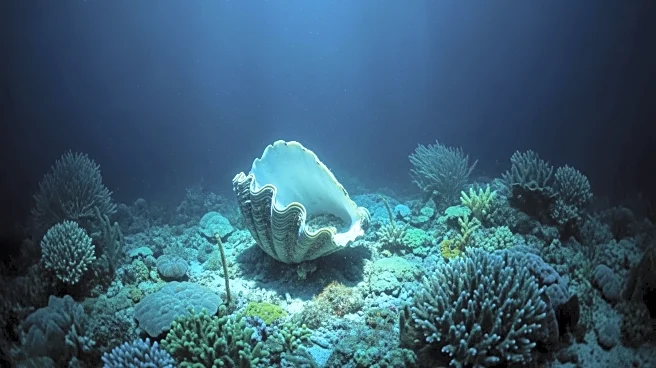What's Happening?
The Togo-flagged vessel Spiridon II, carrying 2,901 cattle from Uruguay, has been accused of MARPOL violations as it seeks ports to unload its cargo. Initially destined for Turkey, the ship was turned
away due to irregularities in paperwork, including mismatches between documents and animal tags. After briefly docking in Turkey to load supplies, the vessel set sail again, reportedly returning to Uruguay. The Animal Welfare Foundation (AWF) has raised concerns about the ship's activities, noting it has gone dark on several occasions and has been seen offloading animals in Benghazi, Libya. AWF reports that at least 58 animals have died, and fears more deaths, including pregnant cows. The organization suspects illegal disposal of dead animals and sewage discharge, calling for an international investigation into the ship's activities and potential MARPOL violations.
Why It's Important?
This situation highlights significant concerns regarding animal welfare and environmental regulations in the live animal transport industry. The alleged MARPOL violations, if proven, could have serious implications for marine conservation efforts and international shipping standards. The AWF's call for an investigation underscores the need for stricter oversight and enforcement of regulations governing live animal transport. The incident also raises ethical questions about the treatment of animals in transit and the responsibilities of shipping companies to ensure humane conditions. The broader impact could lead to increased scrutiny and potential policy changes in the industry, affecting stakeholders involved in livestock transport and trade.
What's Next?
The Spiridon II is currently en route to Alexandria, Egypt, with an expected arrival on November 27. AWF is demanding clarity on the status of the remaining animals onboard and the ship's activities during signal shutdowns. An international investigation could be initiated to examine the alleged MARPOL violations and the treatment of animals. This may involve cooperation between multiple countries and maritime authorities. The outcome of such investigations could influence future regulations and practices in the live animal transport sector, potentially leading to stricter compliance requirements and improved animal welfare standards.
Beyond the Headlines
The incident with Spiridon II may prompt a reevaluation of the live animal transport industry, focusing on ethical and environmental considerations. The potential MARPOL violations highlight the need for better enforcement of international maritime laws to protect marine ecosystems. Additionally, the ethical treatment of animals during transport could become a more prominent issue, influencing consumer perceptions and market demands. Long-term shifts may include increased advocacy for alternative methods of livestock trade that prioritize animal welfare and environmental sustainability.








